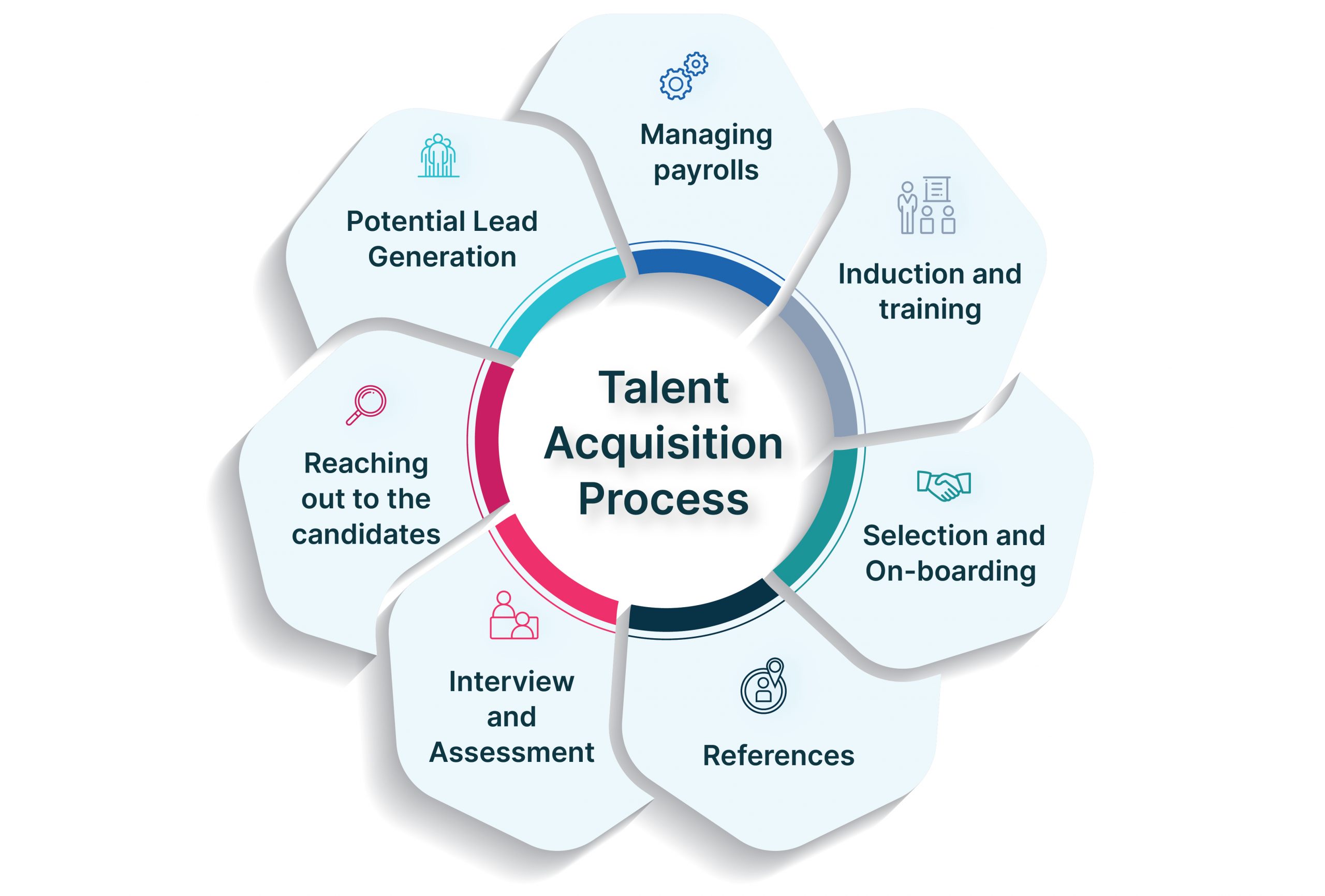Talent Acquisition
What is Talent Acquisition
Definition:
Talent acquisition is the process of identifying, attracting, and acquiring skilled individuals to fulfill specific roles within an organization. It involves strategic planning, recruitment efforts, and candidate evaluation to ensure that the right talent is brought on board to meet the company’s current and future needs.
Analogy:
Think of talent acquisition as casting directors in the film industry. Just as casting directors meticulously select actors who fit the roles in a movie, talent acquisition professionals seek out candidates who possess the skills, qualifications, and cultural fit necessary to excel in various positions within an organization.
Further Description:
Talent acquisition encompasses several key components:
Talent Identification: Talent acquisition professionals identify the skills, experiences, and attributes required for various roles within the organization. They work closely with hiring managers to understand specific job requirements and develop candidate profiles.
Recruitment Strategy: Talent acquisition involves developing and executing effective recruitment strategies to attract qualified candidates. This may include leveraging job boards, social media platforms, professional networks, and recruitment agencies to reach potential candidates.
Candidate Evaluation: Talent acquisition teams assess candidates through interviews, assessments, and reference checks to determine their suitability for the role and cultural fit within the organization. They also consider factors such as career aspirations, values, and work preferences.
Employer Branding: Talent acquisition efforts often include promoting the organization’s employer brand to attract top talent. This involves showcasing the company’s values, culture, and opportunities for career growth and development.
Why is Talent Acquisition Important?
Talent acquisition plays a critical role in driving organizational success and growth for several reasons:
Strategic Alignment: By aligning talent acquisition efforts with organizational goals and objectives, companies can ensure that they have the right people in place to support their strategic initiatives.
Competitive Advantage: Effective talent acquisition enables organizations to attract and retain top talent, giving them a competitive edge in the marketplace.
Innovation and Adaptability: A strong talent acquisition strategy allows companies to bring in individuals with diverse perspectives and skill sets, fostering innovation and adaptability in the face of changing market conditions.
Employee Engagement and Retention: Hiring individuals who are a good cultural fit and who align with the company’s values can lead to higher levels of employee engagement and retention.
Succession Planning: Talent acquisition also plays a crucial role in succession planning by identifying and developing future leaders within the organization.
Examples and Usage:
- Developing targeted recruitment campaigns to attract candidates with specialized skills or experience.
- Implementing employee referral programs to tap into existing networks and identify potential candidates.
- Utilizing data analytics and metrics to measure the effectiveness of talent acquisition efforts and make data-driven decisions.
Key Takeaways:
- Talent acquisition involves identifying, attracting, and acquiring skilled individuals to fill specific roles within an organization.
- It encompasses talent identification, recruitment strategy, candidate evaluation, and employer branding.
- Talent acquisition is important for driving organizational success, fostering innovation, and maintaining a competitive advantage.
- Examples of talent acquisition strategies include targeted recruitment campaigns, employee referral programs, and data-driven decision-making.
Table of Contents





